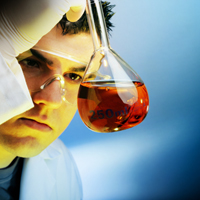
As part of the Undergraduate Research Initiative, 27 undergraduate students will conduct research in their field of study alongside Pace faculty.
This marks the second year since the Undergraduate Student-Faculty Research Program was initiated and awards for excellence in research will be awarded in April of next year.
Senior computer science major Ariana Abramson will be conducting a solar energy experiment under the direction of Dr. Winkler.
“We will be using the newly installed solar classroom located on the Pleasantville Campus to analyze energy consumption and solar energy generation,” Abramson writes in her blog. “The objective of this project is to investigate the classroom’s electricity usage in terms of energy demand and consumption.”
The research being conducted is not education for education sake. The goal of these students is to move towards solutions for some of the most pressing issues in today’s world.
“Alone, Americans consume 26 percent of the world’s energy and our demand is continuously growing by about three percent per year. It is apparent, that if we depend on fuels like oil, coal, and gas alone, the world will not be able to sustain us for generations to come,” Abramsons speculates. “This project is a small step for Pace University to not only become aware of its global footprint, but to also work towards becoming a more sustainable campus. Not only will the sustainability help the U.S. in its campaign to go green, but it will also help the students and the administration. If we can prove how beneficial the solar panel can be in the classroom, we can make an argument that more solar panels need to be installed throughout the campus.”
The research is not limited to the environmental sciences. Dahlia Mayerson, a senior psychology major, will be analyzing the influence of the sibling relationship on Autism.
“One in every 88 people are diagnosed with autism, which means that hundreds of thousands of siblings are dealing with autism in their lives,” said Mayerson.
Mayerson believes the impact siblings have on each other is the strongest.
“The sibling relationship between any two people, let alone people with autism, may be the most impactful relationship in life because they last a lifetime and surpass any friendships or parental relationships,” said Mayerson. “Siblings teach skills that can’t be taught in the classroom, like life and social skills,” she continued. I think studying the relationships and bonds between people with autism and their siblings can teach and show valuable information on socializing people with autism, since their typically developing siblings are their life – long role models who teach them simply by existing in their world.”
All 27 of the undergraduates will be chronicling their experience online at http://ugresearch.blogs.pace.edu/2012/.
